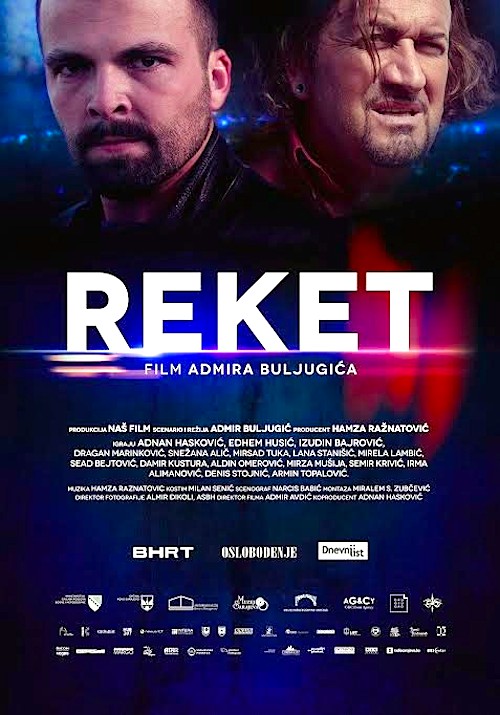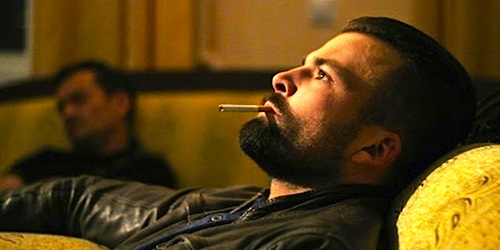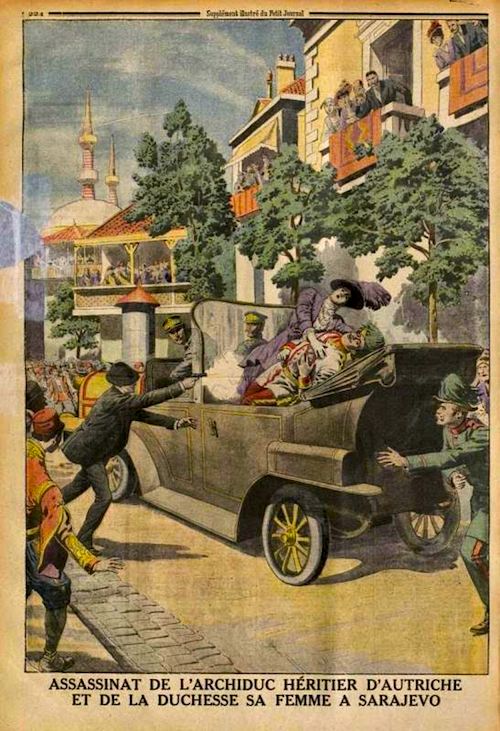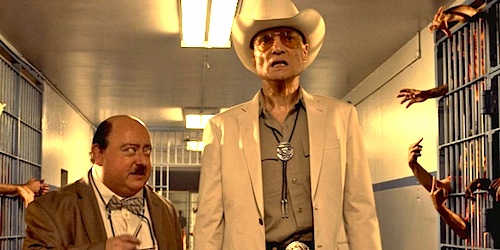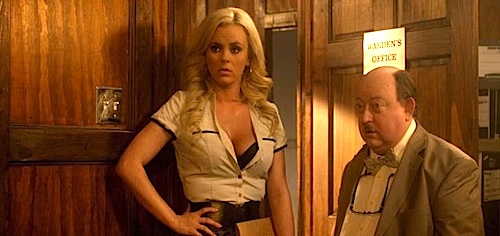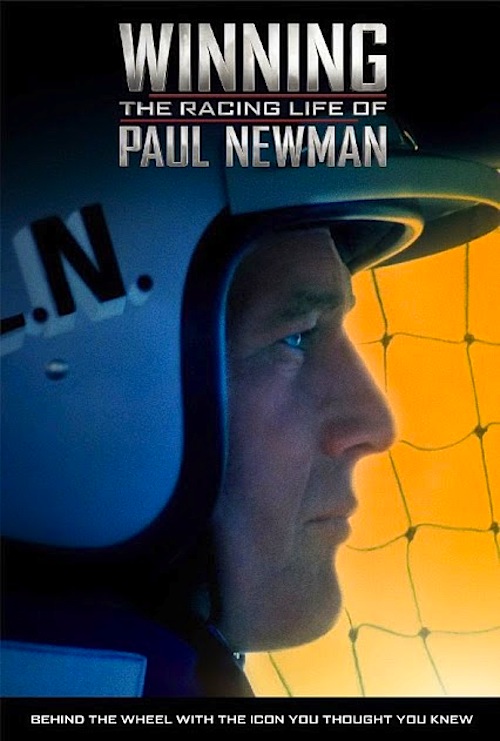By Joe Bendel. For centuries, Greeks have maintained a commanding share of the global shipping business. Arguably, Ioannis Varvakis was part of that tradition. He specialized in re-routing Ottoman shipments. He was a proud pirate, but he became a Russian officer and nobleman, while never relinquishing his Greek identity. Yannis Smaragdis, Greek cinema’s prestigious bio-pic specialist turns his attention to the swashbuckler in his English language production, The Pirate (a.k.a. God Loves Caviar), which just released on DVD and is still available on multiple VOD platforms from Vision Films.
The dreaded pirate Varvakis will end up old and infirm, living as a secret captive in a remote British “clinic” for infectious diseases. We know this because the film starts at this cheery point, telling his story in competing flashbacks. Lefentarios, a dodgy veteran of the Greek resistance, will explain to the British superintendent how he goaded the buccaneer into more direct action, while Varvakis’s former servant will explain to a group of street urchins how great his former master truly was.
Varvakis had always fought the Turks ship to ship, claiming the spoils for his efforts. However, at Lefentarios’s urging, Varvakis hatches an unlikely plan to wipe out the entire Ottoman fleet (apparently by setting his ship on fire and pointing it toward several hundred Ottoman vessels). Needing safe haven, Varvakis offers his services to Catherine the Great, who appoints Varvakis her personal agent for the Caspian.
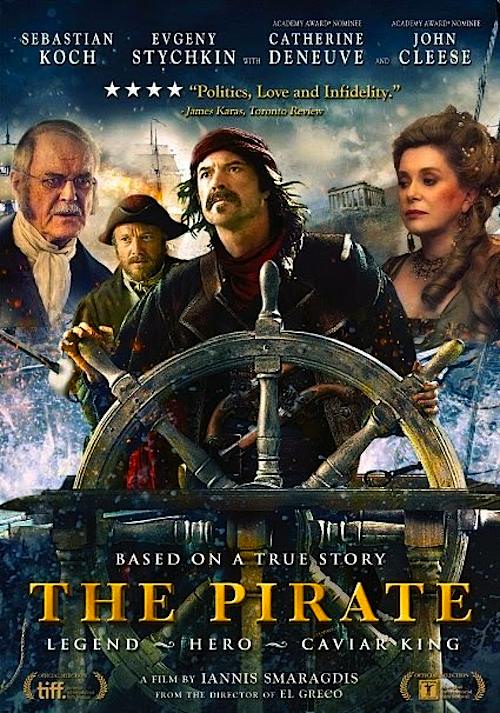 The mostly reformed rogue makes decent coin tending to her interests, but he becomes vastly wealthy when he develops methods to ship caviar without spoilage. Russians love caviar. So do the Persians, which lends his operations additional strategic significance. Catherine is well satisfied with Varvakis, bestowing rank and title upon him. Unfortunately, his personal life is a mess.
The mostly reformed rogue makes decent coin tending to her interests, but he becomes vastly wealthy when he develops methods to ship caviar without spoilage. Russians love caviar. So do the Persians, which lends his operations additional strategic significance. Catherine is well satisfied with Varvakis, bestowing rank and title upon him. Unfortunately, his personal life is a mess.
Frankly, the Greek resistance to the Ottoman occupation is not exactly over exposed in Western media. The Pirate’s home viewing release comes at an opportune time, countering Russell Crowe’s ripping well-made Water Diviner, which views Greco-Turkish conflicts through the lens of Smyrna. However, Smaragdis devotes an awful lot of time to Varvakis’s loveless marriage to the unfaithful Helena, his strained relationship with a grown daughter from a previous union, and the whiny son who can never live up to his father’s expectations.
Even though it is a minor role, John Cleese not surprisingly delivers all the best lines as McCormick, the British administrator. Sebastian Koch (still best known in America for The Lives of Others) has the appropriate presence for a figure of Varvakis’s stature, but despite no shortage of makeup, he never looks like he is the right age for the character’s successive stations in life. In contrast, Evgeniy Stychkin never ages a day as Ivan, the loyal servant who manages to make his way to Varvakis’s double-secret island prison without arousing any suspicion. Of course, Catherine Deneuve does her stateliest as Catherine II, but her screen time is limited.
The Pirate was a big hit domestically, arriving to bolster national spirits in a time of austerity. Tellingly, the Greeks would look to a pirate, who lives off contraband appropriated from others, as a source of inspiration. Still, there is something appealingly old school about its earnest approach to historical drama. You can practically hear the voiceovers announcing “special guest stars” Cleese and Deneuve. Recommended for those looking for some unselfconscious, slightly creaky, throwback entertainment, The Pirate (a.k.a. God Loves Caviar) is now available on DVD, as well as on VOD services like iTunes, DirecTV, and Vudu.
LFM GRADE: C+
Posted on May 26th, 2015 at 3:54pm.
